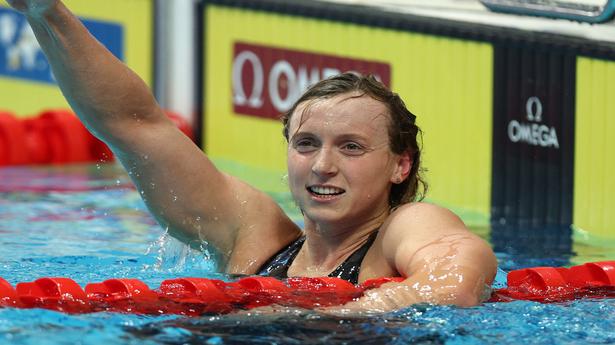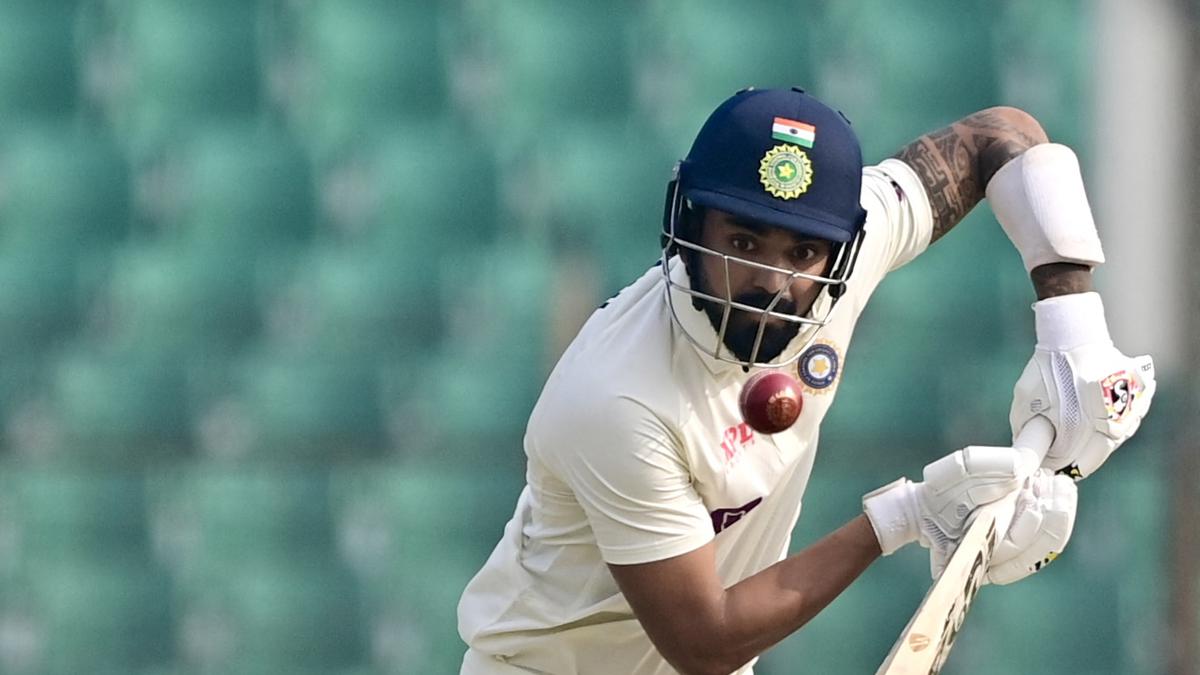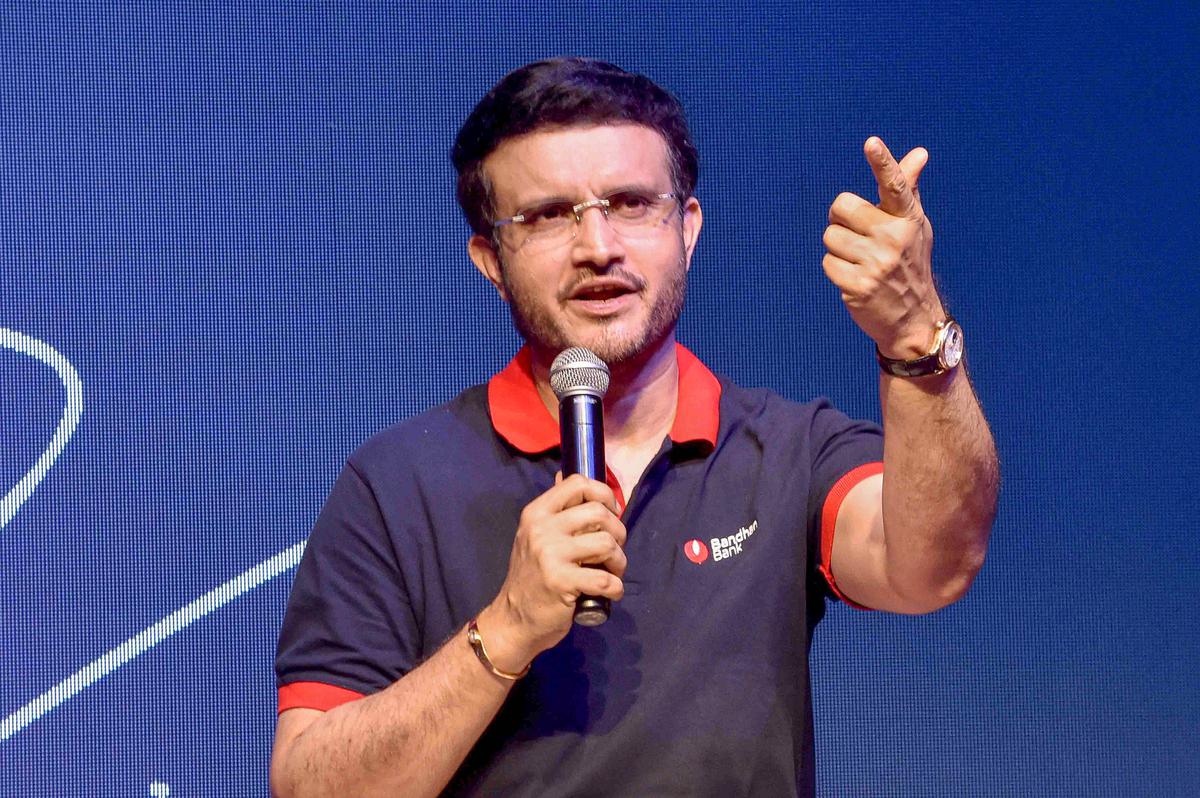After not matching her own lofty standards at the 2019 Worlds and Tokyo Olympics — she still won three gold medals — the American swimmer was unstoppable in Budapest. She added four World titles to take her tally to 19, a number bettered only by Michael Phelps
After not matching her own lofty standards at the 2019 Worlds and Tokyo Olympics — she still won three gold medals — the American swimmer was unstoppable in Budapest. She added four World titles to take her tally to 19, a number bettered only by Michael Phelps
When you win two gold and two silver medals at an Olympics, you are entitled to indulge in a cheat meal of choice and relive memories of a legacy-establishing performance.
Katie Ledecky allowed herself a hamburger, savoured the time gainfully spent in the Tokyo water and ensured that the people who supported her knew how much she valued them.
But — and perhaps this is one of the things that separate the greatest from the great — she felt it was time for a reset. After a difficult World Championships in 2019, when she won just one gold and struggled with illness, and last year’s Games, where she was beaten for the first time in an individual event in three editions, Ledecky knew she had to evolve to reassert her dominance.
Everlasting superiority
Seven Olympic titles and 15 World crowns weren’t enough; she wanted everlasting superiority in the freestyle.
“I’m starting to shift my mindset toward the future, but also just kind of trying to let these past five years sink in, and Tokyo especially, and my whole career up to this point,” she told The Stanford Daily. “I’m planning on 2024. I think each Olympic cycle brings new and different challenges.”
So Ledecky decided to shift base from California to Florida last October to work with Anthony Nesty, who won the 1988 Olympic butterfly gold for Suriname. An assistant for Team USA at Tokyo, Nesty had guided Bobby Finke to 800m and 1500m freestyle golds and Kieran Smith to the 400m freestyle bronze; his expertise in the distance freestyle events appealed to Ledecky.
The move to Florida also offered Ledecky the valuable opportunity to train with competitors who would push her — America’s top male mid-distance and distance swimmers.
“I was training with a college team [Stanford University], and I’m older than most of the other swimmers,” she said. “I didn’t have too many mid-distance, distance people to train with. I’m excited to be a part of the University of Florida’s world-class programme and train with coach Nesty and the top-tier mid-distance and distance training group.”
Two specific challenges
Ledecky, 25, had two specific challenges to counter. One was historic: she was seeking to become the oldest female World and Olympic champion in the mid-distance events over the next three years; these stamina events have long been a stronghold of the ‘youngsters’, which in swimming terms has been 23 and under. The other challenge was her own greatness: when you are already the best-ever at what you do, how much room do you have for progress?
“We talk a lot about improvement,” Ledecky told NBC. “Of course, improvement looks a little different for me than some other people, given that my times are really hard to improve. I’ve acknowledged that, and I’ve learned that over the years.”
So the interest in Ledecky’s performance at the recent World Championships in Budapest was at an all-time high. She wouldn’t face Ariarne Titmus, the woman who beat her in the 400m freestyle in Tokyo, because the Australian had decided to concentrate on the Commonwealth Games, but could Ledecky prove that her best — domination — wasn’t behind her?
She did just that, showing that some ‘old’ swimmers don’t fade away as fast as they used to and that a few prodigies stay prodigious ten years into their career.
When she won the 800m freestyle at the 2012 Olympics at 15, Ledecky was a teenage sensation. Her 800m freestyle gold last Friday was a record fifth straight World title in that event, something nobody else, not even Michael Phelps, has achieved. It was also an eight consecutive triumph, across the Worlds and the Olympics, in the 800m freestyle!
“I think back to London,” Ledecky said. “I made it a goal to not be a one-hit wonder and here we are 10 years later, so I’m really proud of that and still excited for the future as well.”
Ledecky’s time of 8:8.04 was under four seconds off the world record she set at the 2016 Olympics. “I’m happy with that,” she said. “Fastest I’ve been in a couple of years.”
Sports monopoly
The timing, the fifth quickest ever, also means Ledecky has swum the 27 fastest races in the history of the women’s 800m freestyle — a sports monopoly, if ever there was one.
It was also her 19th gold at the Worlds, second only to Phelps’ 26, and her fourth at Budapest. She earlier helped USA win the 4×200 freestyle relay, two days after she won the 1500m freestyle, which came two days after she won the 400m freestyle.
She completed the 400/800/1500 triple for the fourth time at a single Worlds, more than all the other swimmers who managed the feat combined. Germany’s Hannah Stockbauer, Australia’s Grant Hackett and China’s Sun Yang each managed it only once.
At 25, Ledecky is older than any woman to win a World Championships distance freestyle race (400m, 800m and 1500m).
And she’s not finished yet. “This is just the start, which is tremendously exciting for me,” said Ledecky, who said the changes to her approach are paying off. “There have been a couple of things that are a little different — training with the men, to try to keep up as much as I can and they push me. I hope that they feel that they’ve benefited from me being there, and just a lot of work on my stroke and my rhythm.”
Ledecky’s stroke and rhythm are unique — described as a ‘gallop’ or a ‘giddy-up’, she has a slightly longer right stroke than left, in part because she breathes exclusively to her right. Her pull underwater is exemplary: her early vertical forearm pull is efficient and less susceptible to injury. She kicks less in longer races, only using a strong kick in the final stages and in shorter races.
In addition to focusing on her stroke and rhythm, Ledecky is also monitoring her competitive workload. When Phelps won eight gold medals at the 2008 Games, he swam about 3,300 metres; Ledecky swam 6,200 metres at the Olympics last year. She is looking to reduce it to the mid-5,000s in major events by dropping the 200m.
It isn’t merely the total distance, although that is a major factor. The more events she enters, the less time she has to recover between races, which leaves her vulnerable to younger rivals — the most formidable among them at the moment being Titmus, four years Ledecky’s junior.
Titmus has had the measure of Ledecky over 400m, beating her at both the 2019 Worlds and the 2020 Olympics. The Australian also recently bettered Ledecky’s world record in the 400m freestyle, which the American had set at the 2016 Olympics. Titmus thus became the first swimmer other than Ledecky to break a Ledecky world record!
Ledecky, however, retains her superiority over 800m and Titmus doesn’t swim anything longer.
The rivalry has pushed both women to their best, and although they aren’t scheduled at this moment to compete against each other this year, they are likely to go head to head in two World Championships and the Olympics over the next two years.
‘Completely honoured’
“I can’t put myself up next to her,” Titmus said of her rival. “What she has done for female swimming has been insane. She’s been at this level for 10 years. To be in the conversation with her, I feel completely honoured. I wouldn’t be here without her. I hope this is going to keep the battle going, give her some drive, hopefully, we can see how much faster we can keep going.”
Ledecky, for her part, said she enjoys the thrill of being chased as much as she enjoyed the thrill of the chase. “It’s great for the sport, great to have somebody like [Titmus] to race,” she said. “And I know that there are other swimmers as well that are coming up that are going to be very competitive over the next couple of years. So that definitely keeps me on my toes. And I think we’ll continue to have some great races.”





